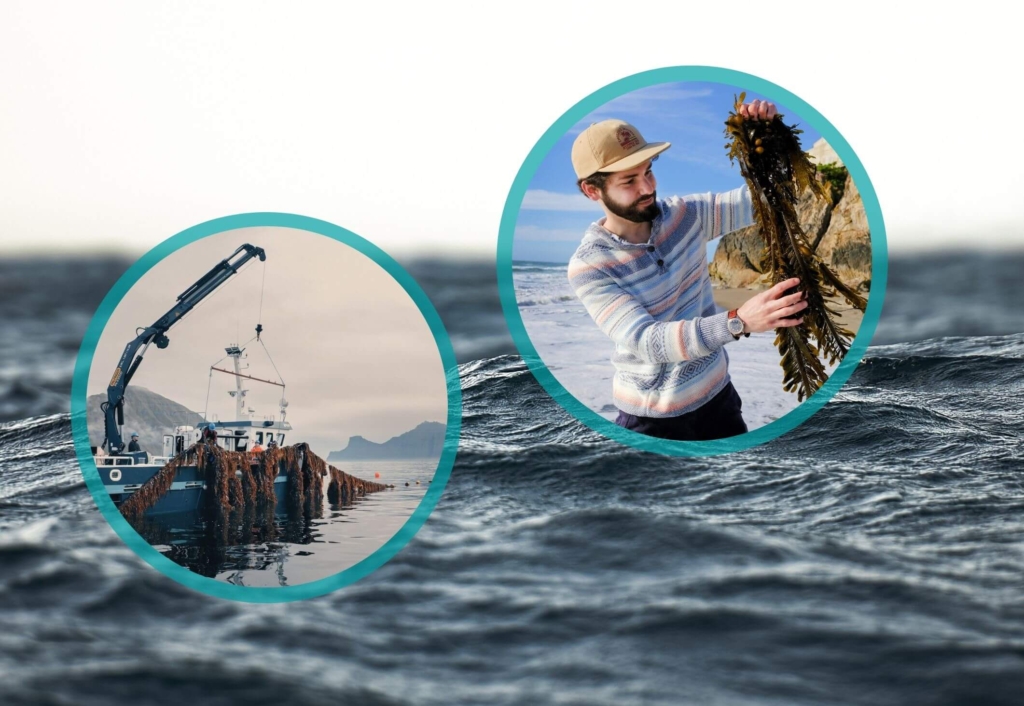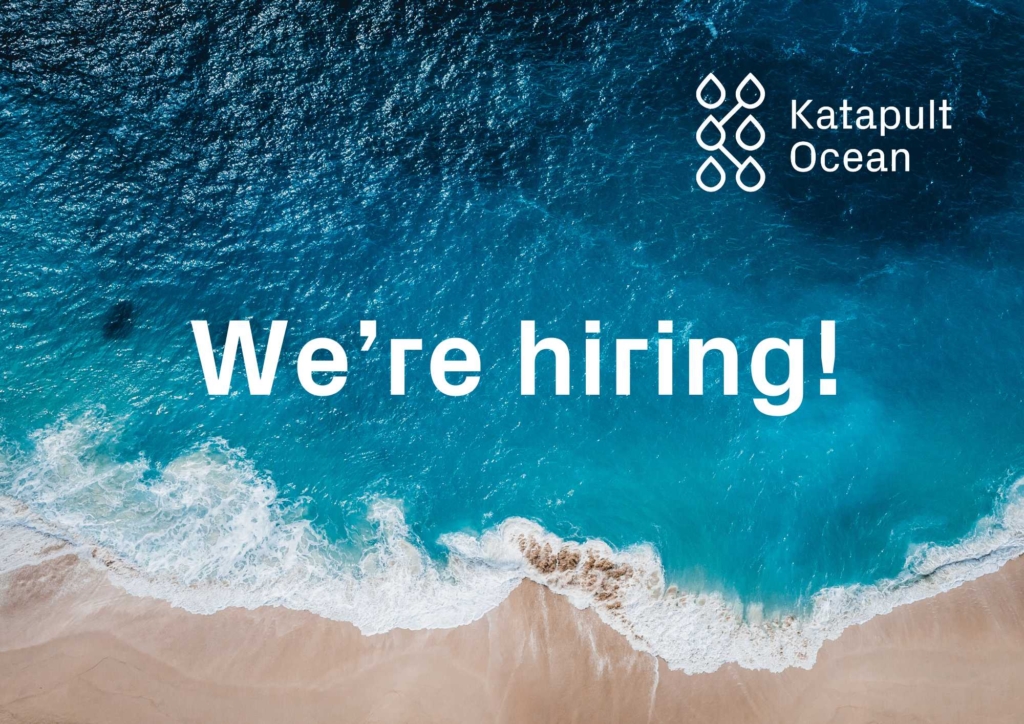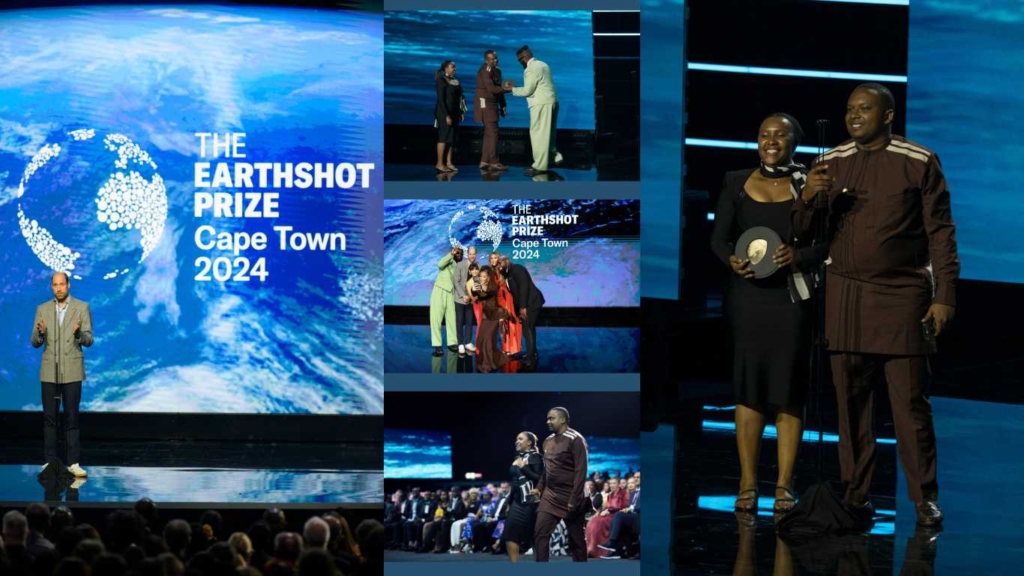Blue World Perspective: An Ocean of Opportunities for sustainable food and harvesting

In April, Katapult launched its latest edition of Blue World Perspective. The aim of the report is to highlight the vast opportunities presented by ocean resources, while simultaneously addressing the challenges our ocean is currently facing, as well as highlighting potential solutions. In this article, we explore the trends, challenges and opportunities associated with sustainable ocean food and harvesting. We are also proud to showcase 3 Katapult Portfolio Companies: Ocean Rainforest, 12 Tides and Oregon Seaweed, who are making a strong impact in the space of sustainable ocean food and harvesting. Don’t forget to download your full copy of BWP, here.
Sustainable fisheries and aquaculture will play a significant role in the future of food, as will technology to enable the efficient and sustainable utilization of organic ocean resources. The future health of the ocean depends on urgent actions to renew, innovate and scale solutions that meet the needs of a growing global population in a more sustainable manner. Many academic and research organizations have asserted the crucial role that aquaculture can play in feeding global populations, but this industry must develop approaches that sustain the health of ocean ecosystems as they grow.
While fisheries are an established industry, the vast potential of other ocean resources has long been untapped. If we manage to sustainably scale alternative innovations and uptake from these resources, the ocean could provide significant value in multiple applications, making it uniquely positioned to replace unsustainable processes and products that abound today. The cultivation of ocean organics, such as algae, is one of the emerging industries projected to provide sustainable protein alternatives. In addition to its use as a sustainable protein source that could replace resource intensive and more polluting processes on land, seaweed can act as a regenerative force by supporting carbon sequestration, nutrient absorption and biodiversity in ocean waters.
Production of seaweed does not require fresh water or fertilizers, making it more efficient compared with other production processes. Seaweed, as an alternative seafood, has the potential to act both as a climate change mitigant and ocean ecosystem regenerator, and it ultimately poses a healthier and less expensive alternative to conventional food and animal feed.
Production and technology companies in the sector are now gaining significant traction as the huge potential of this wonder material becomes better understood. The value of the global seaweed market has more than tripled between 2000 and 2018 and is forecasted a double-digit compound annual growth rate in the next five to ten years, dependent upon the availability of funding required for these many new players to scale their production.
The diverse functions of seaweed as a biomass also pose opportunities for application in other value chains, such as pharmaceuticals and bioplastics for alternative packaging. The number of seaweed industry players across the value chain (in production, consumer goods and sales) reflects this optimism for the industry and has nearly tripled in Europe over the past ten years. While seaweed’s ability to mitigate climate change is gaining increasing validation, it is still unclear what the environmental impact truly is, and it is thus crucial to sustain more research and data collection in years to come, to keep up with the expected growth. As the value chains are continuing to get more established, and are being supported by a strong research network, we see vast potential for impactful solutions in this space.
Providing the world with sustainable ocean harvesting and food solutions: Ocean Rainforest, 12 Tides and Oregon Seaweed
Ocean Rainforest
Ocean Rainforest seeds, grows, harvests and processes seaweed in the North Atlantic Ocean and the Pacific Ocean. By applying a gentle handling process at sites close to the farms, they ensure the seaweed stays rich in nutrients. By cultivating the seaweed instead of taking from wild stocks, Ocean Rainforest is sustaining the natural balance of local habitats, and the seaweed absorbs CO2 from the atmosphere as it grows.
Ocean Rainforest has developed a promising cultivation method, making them a frontrunner in the European industry and Europe’s leading seaweed cultivator. The first scale pilot was successfully completed last year and has made it ready to scale its production and utilize its carbon mitigation opportunity, placing it in a position to make a positive impact in food and feed value chains as well as on ocean health, economic development and job security in coastal areas.
12 Tides
12 Tides makes ocean-positive foods with kelp from regenerative ocean farms. By creating high-value end-markets for regeneratively-grown kelp, 12 Tides is supporting sustainable growth of the kelp farming industry in North America.
By cultivating kelp and its introduction to the consumer market, the damage inflicted upon the ocean can be reversed. Kelp farming reduces ocean acidification so that marine life can thrive and serves as an alternative income source for coastal communities.
Founder Patrick Schnettler, says, “I spent enough time in the seafood industry to see that the current intersection between the food system and the oceans is extractive and unsustainable. I founded 12 Tides to help build a regenerative relationship between the food system and the oceans.”
Oregon Seaweed
Oregon Seaweed has cultivated a unique strain of seaweed, devaleraea mollis, commonly marketed as pacific dulse, that has a taste profile compared to bacon. Oregon Seaweed’s on-land farm management has made Pacific dulse the most sustainable, fastest-growing protein on Earth.
Alongside minimizing crop wastage, Oregon Seaweed’s careful on-land cultivation of Pacific dulse returns water to the ocean with a lower-level of acidification. The ocean ecosystem next to Oregon Seaweed’s farm is thus more capable of tackling the impact of climate change. In addition, Pacific dulse’s fast growth rate and favorable taste have the capability to sustainably satisfy both global food demands and consumer palettes.
Founder Chuck Toombs, says, “World supply chains need to re-align to provide higher quality proteins with a lower cost to our environment. We intend to be a major part of that transition.”
Learn more about Katapult’s high impact portfolio companies, here.

